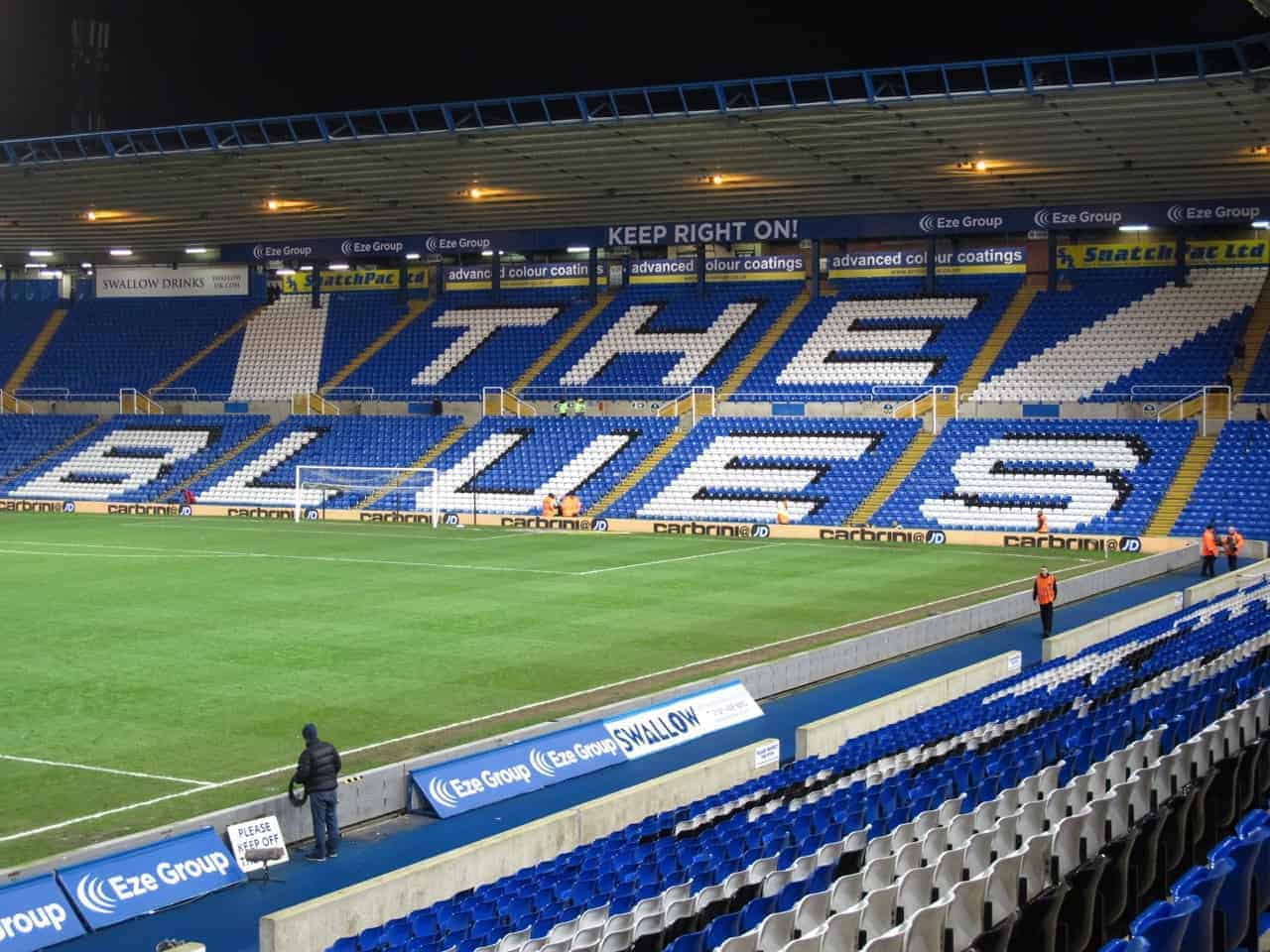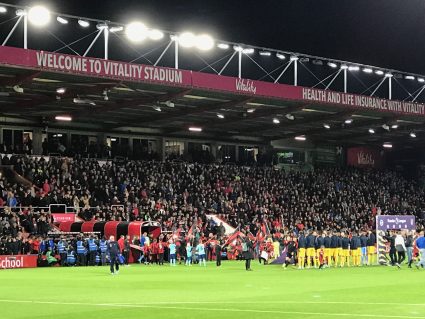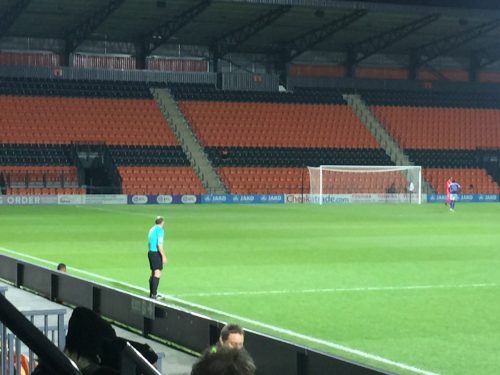What is "Non-League Day" in English soccer? Typically occurring in March or April, Non-League Day…
Are English Soccer Clubs Going Out of Business Because of the Pandemic?

The pandemic is obviously doing immense damage all over the world, but since this is essentially an English soccer community, I thought I would address this question: Is the pandemic going to drive English soccer clubs out of business?
The short answer is yes, and it already has. But let’s dig into the how’s, the why’s, and the details.
The Messy Financials of Football Clubs
The current estimated loss to European soccer as a whole, from the pandemic, is forecast to be around $12 billion. But the problem predates that.
Plainly put, most English clubs don’t make much money, nor does the game as a whole. There is such a temptation to try and buy success in the transfer market that even some of the biggest clubs in the business operate on very narrow margins.
One example of the crazy spending is AFC Bournemouth, who feasted on Premier League TV money for years while in the top flight, but were spending something close to 85% of their total revenue on player wages. Now that they have been relegated, one has to worry about their financial status. Selling tickets for the Man City game is a very different thing from selling tickets for the Rotherham game. And that’s without the pandemic keeping fans away entirely.
The same is true for sponsors who want their logos seen on television and in full stadiums against the big clubs, not in a half-empty stadium against a small one.
Many clubs make up for this in two ways: rich owners and debt. What’s really messy is when rich owners try to essentially buy promotion by getting better (more expensive) players, to earn more money in a higher league … and fail. Analyses indicate something close to 20% of European clubs currently have debts that they can’t reasonably pay off.
Where the Money Comes From (or Doesn’t)
In the Premier League, with so much money coming in, clubs spend on average about 50% of their income on wages. But something like 80% of that income is from television, not ticket sales. So if they have empty (or nearly empty) stadiums for a while, they can survive as long as the TV money comes in. Their global sponsors are also happy to be associated with their brands, so long as games are on television.
In the Football League, though (that’s tiers two through four), clubs’ player wages are much closer to their income, and television money is much less important. So empty stadiums there are like a tsunami exposing the club foundations that were never very good at all.
Again, it’s the same with their sponsors: If your business supporter is a local roofing company instead of an international corporation, then the effects of the pandemic on that small local business (decreased revenue and therefore tighter marketing budget) will have an effect on your bottom line.
And the further down the pyramid you go, the more important match-day revenue and sponsors become. If a club in League Two, much less down in the National League and below, can’t sell tickets, beers, pies, shirts and scarves, chaos ensues. The current estimate from the Football League is a combined $250 million loss if fans don’t return this season.
English Clubs Going Out of Business
This was already happening pre-Covid, and it could be getting worse soon, especially since the UK government has now ruled out supporters attending games at bigger clubs, probably through March 2021. Last year Bury went out of business while in League One, and Bolton Wanderers nearly did so.
September 2020 saw the demise of Macclesfield Town, who were relegated from the Football League last year after multiple points deductions resulting from falling behind on taxes and player wages. They were deep in debt and staring down a season with no fans, and therefore very little revenue.
Southend United, just relegated from League One for this season, are in similar dire straits and are only in existence right now because a bankruptcy judge gave them a little more time to work things out.
Who else is in trouble? Without knowing all the details, I have seen very concerning reports about Oldham, Charlton, Birmingham City, Portsmouth, Wigan (just relegated from the Championship after a points-deduction penalty but apparently with new ownership lined up), and Morecambe.
In January 2021 it was reported that Arsenal has taken out a £120 million (roughly $164 million) loan to get them through the season, and estimates have the biggest European clubs losing a combined 1 billion Euro, or about $1.2 billion.
One can only imagine what’s going on below the Football League, although not paying players might make those amateur clubs more financially stable.
Perspective: Premier League Money, Real World Money
The amount that Macclesfield Town owed when they went bust was around £600,000. That is what Gareth Bale of Real Madrid earns per week. This makes plenty of people decry the greed of the top leagues, players and the TV networks. But many of these same people also watch the Premier League and support a team in it! Plus, Macclesfield and its (I assume) irresponsible owner dug its own hole. Sometimes this is just financial mismanagement or risky bets like trying to drive ticket sales with better players, and sometimes it’s people using their hearts instead of their heads to run the club.
Meanwhile, negotiations are ongoing for as much as £200 million (about $250 million US) in payments from the Premier League to the Football League. This was negotiated between the leagues and government so the big earners of the Premier League would help out the “grass roots” a little.
The New Salary Cap in League One and League Two
This summer, in response to Covid-19 and the longstanding over-spending among clubs, Leagues One and Two voted in a salary cap for their division. Starting this season, clubs in League One can spend a total of £2.5 million on wages, and in League Two they can spend £1.5 million.
But the players’ union has said they will sue, and some clubs will be massively hit by this. Consider Sunderland, who dropped out of the Championship with a reported £40 million payroll! Even with a few years to get under the cap — previously-signed contracts have to be honored after all — clubs well over the cap could be devastated by the necessary cuts. Ironically, they could also be inspired to spend even more to get to the Championship, and away from the cap.
All of this leads many people to call for reforms, not just survival. The most fundamental reform is for clubs to simply spend within their means. But tell that to supporters who want better results, or a club facing relegation and even more loss of revenue. Buying that next top player can always seem like a good idea.
Meanwhile, I will keep track of clubs’ finances as I can. Let’s hope the damage isn’t too widespread and we can get back to games safely … and soon.









Post Comments